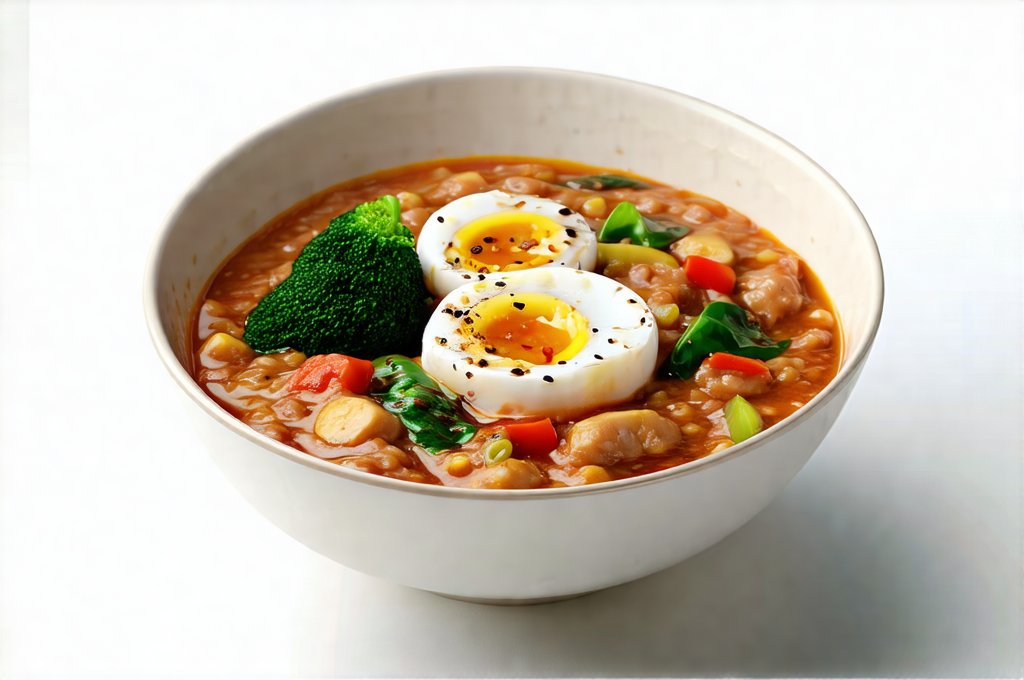The modern diet often feels like a digestive assault course – rapid preparation, processed ingredients, and large portion sizes all contribute to strain on our gut. Many people experience discomfort after meals, ranging from mild bloating to more serious issues like heartburn or Irritable Bowel Syndrome (IBS). While individual sensitivities vary greatly, there’s growing recognition that simplifying our food choices can significantly improve digestive health. This is where the concept of ‘one-bowl meals’ becomes incredibly valuable, offering not just convenience but a pathway toward gentler, more nourishing eating. These aren’t about restriction; they are about mindful combination and preparation techniques designed to reduce digestive stress while still delivering satisfying and flavorful experiences.
The beauty of one-bowl meals lies in their inherent structure – they encourage balance and thoughtful ingredient selection. By combining proteins, healthy fats, complex carbohydrates, and plenty of vegetables within a single serving, we create a meal that’s less likely to overload the system. Furthermore, focusing on whole, unprocessed foods minimizes exposure to common irritants like artificial additives or excessive refined sugars. It’s about creating meals that work with your body, rather than against it. We will explore how specific ingredient choices and preparation methods can ease the digestive burden, making mealtimes a source of nourishment and wellbeing. Understanding the gut’s reaction to certain foods is also key in building these meals.
Building Blocks for Digestive Ease
One-bowl meals aren’t simply about throwing ingredients together; they are constructed around principles that promote easier digestion. A key element is understanding food combining – not as a rigid set of rules, but as a guide to minimizing potential digestive clashes. For instance, large amounts of protein and starch simultaneously can be harder for some people to digest than separating them somewhat or pairing them with plenty of fiber-rich vegetables. However, it’s crucial to remember that individual tolerance differs drastically; what works well for one person may not work for another. Experimentation and self-awareness are key.
Beyond food combining, preparation methods play a substantial role. Raw foods can be difficult to digest for some, while overly processed foods lack the enzymes needed for efficient breakdown. Gentle cooking methods like steaming, poaching, or slow roasting tend to preserve nutrients and make food more accessible to our digestive systems. Similarly, incorporating spices known for their digestive benefits – ginger, turmeric, fennel, cumin – can provide additional support. It’s also beneficial to chew your food thoroughly; this is the first step in digestion, breaking down food mechanically and releasing enzymes from saliva that begin the process of nutrient absorption. Paying importance to regular meals will also aid in proper digestion.
Finally, portion size matters. Overeating puts a strain on the digestive system, regardless of how healthy the meal is. One-bowl meals naturally encourage mindful portions because they are contained within a single serving. This helps promote satiety without overwhelming your gut. Remember, listening to your body’s signals and adjusting portion sizes accordingly is paramount for optimal digestion. Frequent burping and inflammation can also indicate digestive issues.
Ingredient Focus: Soothing Choices
Certain ingredients consistently stand out as being easier on the digestive system than others. Complex carbohydrates like sweet potatoes, quinoa, or brown rice are generally well-tolerated, providing sustained energy without causing rapid spikes in blood sugar. These options are preferable to refined grains which can contribute to bloating and discomfort. Similarly, lean proteins – fish, poultry (skinless), tofu, tempeh – are easier to digest than fatty cuts of meat.
When it comes to vegetables, steamed or roasted varieties are often better tolerated than raw ones, especially for those with sensitive digestive systems. Leafy greens like spinach and kale are nutrient powerhouses but can be fibrous; cooking them slightly softens the fibers, making them easier to break down. Root vegetables – carrots, beets, parsnips – offer a natural sweetness and are packed with vitamins, but again, moderation is key due to their carbohydrate content. Avoiding cruciferous vegetables (broccoli, cauliflower, cabbage) or limiting their quantity can be helpful for those prone to gas and bloating.
Healthy fats are essential for digestion and overall health, but the type of fat matters. Avocado, olive oil, nuts and seeds (in moderation), and fatty fish provide beneficial omega-3 fatty acids that support gut health. Avoiding fried foods and excessive saturated or trans fats minimizes digestive stress. Incorporating fermented foods – yogurt (if dairy is tolerated), kefir, sauerkraut, kimchi – introduces probiotics, which are beneficial bacteria that aid in digestion and improve gut flora balance. Foods to restore pH can also help with this process.
Gentle Protein Sources
Protein is crucial for repair and maintenance, but some sources can be more challenging to digest than others. Fish, particularly fatty fish like salmon and mackerel, offer omega-3 fatty acids alongside protein, making them a double win for digestive health. Poultry – chicken or turkey breast without skin – are lean and relatively easy to break down. When choosing red meat, opt for leaner cuts and consume in smaller portions.
Plant-based proteins like tofu and tempeh offer excellent alternatives, providing complete proteins with the added benefit of fiber. These can be marinated or spiced to enhance flavor and digestibility. Lentils and beans are also fantastic sources of protein and fiber but can cause gas in some individuals; soaking them overnight and rinsing thoroughly before cooking can help reduce this effect. Considering plant-based proteins is a great way to ease digestion.
Consider the preparation method: grilling, baking, steaming, or poaching are preferable to frying. Marinating proteins with ginger, turmeric, or lemon juice not only adds flavor but also aids digestion. Finally, pairing protein with a generous serving of vegetables helps slow down digestion and prevent bloating.
Carbohydrate Considerations
Choosing the right carbohydrates is fundamental for easing digestive burden. Sweet potatoes are an excellent choice, offering complex carbs, fiber, and vitamin A. They can be roasted, mashed, or added to one-bowl meals in various ways. Quinoa is another versatile option, providing complete protein and a good source of fiber. It cooks quickly and has a mild flavor that complements many dishes.
Brown rice is preferable to white rice due to its higher fiber content, which aids digestion. However, even brown rice can be difficult for some individuals; consider experimenting with other grains like millet or farro. Avoid overly processed carbohydrates like refined flour products (breads, pastas) and sugary cereals. These offer little nutritional value and can contribute to inflammation and digestive discomfort.
Focus on portion control when it comes to carbohydrates. Overconsumption of even healthy carbs can lead to bloating and indigestion. Pairing carbohydrates with protein and healthy fats helps slow down digestion and prevent spikes in blood sugar levels.
Spice It Right: Digestive Allies
Spices aren’t just about flavor – many possess remarkable digestive benefits. Ginger is renowned for its ability to soothe nausea, reduce inflammation, and promote gut motility. Adding fresh ginger to one-bowl meals or sipping on ginger tea can be incredibly helpful. Turmeric, with its active compound curcumin, has potent anti-inflammatory properties that support overall gut health.
Fennel seeds are traditionally used to relieve bloating and gas; chewing a few seeds after a meal can aid digestion. Cumin is another spice known for its digestive benefits, stimulating enzyme production and reducing inflammation. Peppermint and chamomile teas can also soothe the digestive system and reduce stress levels, which can impact gut function. Avoiding foods that inflame the esophagus is crucial too. Finally, be mindful of cold drinks that inflame.
Experiment with incorporating these spices into your one-bowl meals – adding them to marinades, sauces, or directly into the cooking process. Be mindful of individual tolerance; start with small amounts and gradually increase as needed. Remember that spices are a complementary tool; they enhance digestion but don’t replace the importance of a balanced diet and healthy lifestyle.


















